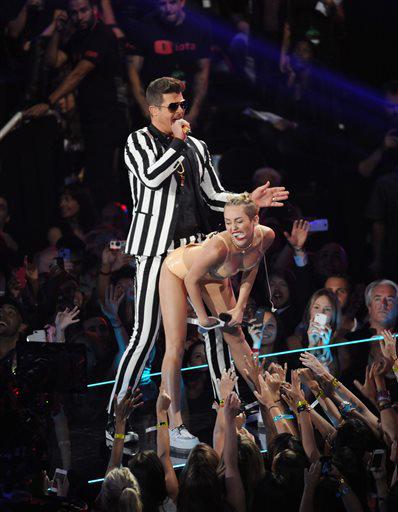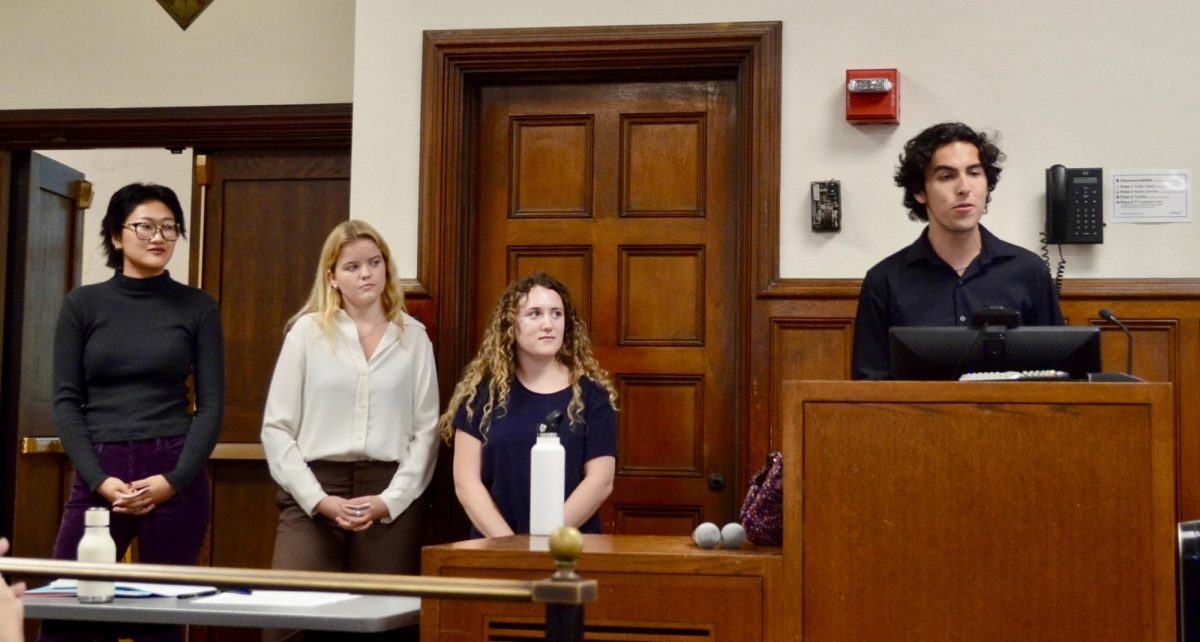Madelyn Murphy
Contributing Writer
Whether the lines are blurred or not, they certainly have been crossed. Miley Cyrus and Robin Thicke’s performance of “Blurred Lines” at the MTV Video Music Awards was, and still remains, a controversial topic, especially when it comes to the lack of dignity concerning women.
Cyrus’ excessive teddy-bear grinding, twerking, and foam finger-related antics alongside Thicke evoked disdain from a variety of onlookers. The provocative performance instantly granted Cyrus Twitter fame, resulting in 306,000 tweets per minute directed to her account, according to a tweet from the pop star herself.
In a post-performance interview, Cyrus reacted to the infamy surrounding the performance in a positive manner, revealing that her and Thicke’s goal for the duet was to “make history,” likening it to the memorable performances of Britney Spears and Madonna.
 Cyrus certainly gained the media’s attention, and there has since been significant outrage and disgust directed at the twenty-year-old star. The song itself and the messages it conveys seems to have been lost behind the dancing teddy bears and Cyrus’s audacious actions. The media is more intrigued by the twerking, booty grabs and vulgarities of both Cyrus and Thicke than in the lyrics of the song itself. Rumors surrounding potential infidelity by Thicke in his marriage have been equally detrimental.
Cyrus certainly gained the media’s attention, and there has since been significant outrage and disgust directed at the twenty-year-old star. The song itself and the messages it conveys seems to have been lost behind the dancing teddy bears and Cyrus’s audacious actions. The media is more intrigued by the twerking, booty grabs and vulgarities of both Cyrus and Thicke than in the lyrics of the song itself. Rumors surrounding potential infidelity by Thicke in his marriage have been equally detrimental.
The lyrics contain vulgar and offensive statements. Some of them take the human dignity away from women: “But you’re an animal, baby it’s in your nature.” Other lyrics give women strict sexual commands: “get down, get up, do it like it hurt, like it hurt, what you don’t like work?” Worst of all, the chorus reveals the clear lack of sexual consent in the encounter portrayed in the song: “I hate these blurred lines, I know you want it…”
In response to this glorification of non-consensual sex, a group of women known as the Law Revue Girls created a parody from Thicke’s song titled, “Defined Lines,” in which they switch Thicke’s lyrics “I hate these blurred lines,” to “that’s a sex crime.”
Thicke’s lyrics, however, are only part of the problem; the rest lie in his music video, which the Law Revue Girls continued to parody. In his video, Thicke grinds and feels up the scantily clad dancers, even going so far as to blow smoke into one of his dancer’s faces. Just as Cyrus tried to make white-girl twerking sexy, Thicke has also attempted to turn the vulgar into something sexually appealing: rape. And, according to a wave of angry tweets and YouTube parodies, they have both been unsuccessful. Thicke so aptly put it in his song, “Go ahead, get at me” and he should prepare himself for just that.
Whether Thicke knows what he is getting himself into or not, we can be assured that fans have spoken up and will continue to speak up against the raciness and vulgarity of Thicke’s song, whether he gives his consent or not.









































































































































































































